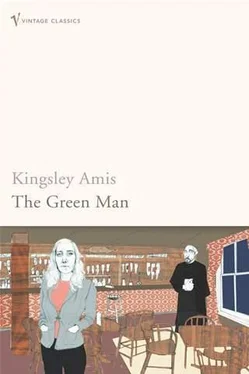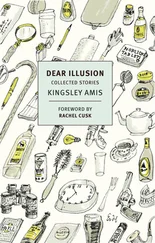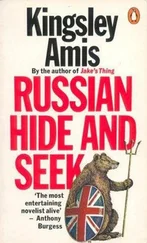3: The Small Bird
I had my answer the next morning. The first half-hour of the new day deserved to be forgotten at once. I had slept well enough for five and a half hours, without dreaming; I never dream, have not done so since I was a boy and can hardly remember what it was like. But I woke up with my heart going so irregularly that it seemed to have forgotten its business and to be treating each pulsation as a new problem that must be solved on its merits. The pain in my back lost no time in setting up an accompaniment. As I lay there beside Joyce, who as always made no sound and moved only in breathing, I reflected that neither heart nor back had drawn attention to themselves for several hours before I went to bed, and that Jack Maybury had more than once told me to arrange for plenty of things to be happening in my environment and then see if I was troubled physically. Well, he had a sort of case in point. Now, certainly, lying awake in near-darkness, I was shut up with myself in the smallest possible box.
I embarked on the tedious drills of getting up, all those dozens of actions that seem to carry no more meaning than a religious ritual performed by one who has forgotten its significance. Shaving in the bathroom, I discovered a new pimple at the side of my chin. From time to time, I still suffer one of these unengaging advertisements of the fact that losing the nicer parts of being young—whatever they may be—by no means guarantees the loss of the nastier parts. This particular example, in as flourishing a state as if it had been there for days, was too cunningly deep-seated for me to be able to nick off its top with my razor, nor, of course, could I have squeezed it out except at the price of messing up about a tenth of my face.
‘Instructions to a pimple,’ I said to myself as I worked on my upper lip. ‘One. Acquire head as slowly as possible. Exception: if can arrange first appearance after six p.m., reverse this procedure. Prominent head viewed for first time morning after party, etc., valuable aid nullifying in retrospect subject’s subtle seduction moves, gay fund of anecdotes, etc. Two. Select site either where squeezing painful, e.g. round eye, cheek near nose, or where skin too soft for efficient squeezing, e.g. between mouth and chin, at side of neck (if latter, prefer area where shirt-collar will rub). Three. Appear in combination, near existing pustule(s). If none, take as focal point patch of broken veins, mole, birthmark, anything a-bloody-tall, in fact’ —I was talking aloud now, though not loudly— ’which will aid the impression that some major skin disorder is about to break out of its beachhead and overrun every visible square inch up to the hairline, and be sure to pick a day when the poor sod’s meeting his girl,’ I finished not so not loudly, after a small disjunctive voice in my head had asked me whether I knew I had some frightfully funny sort of spot thing on my chin.
Things failed to pick up much in the kitchen, where I stood drinking coffee, eating a piece of toast and listening and looking while the chef told and showed me how badly Ramón had done his cleaning job the previous day. I put David on to that, on to everything else for the next six or eight hours too, and was off, at any rate as far as the office. Here I put a call through to John Duerinckx-Williams in Cambridge. For my present purpose, or indeed for any other I might have there, he was the only possibility among the dozen or so university people I knew otherwise than as guests at my house; I would not have asked any of those I had known as an undergraduate there, back in the mid-1930s, to tell me the time, let alone to help me with what must seem outlandish inquiries.
Despite everything the St Matthew’s porter could do, I finally got hold of Duerinckx-Williams, who said he would see me at eleven o’clock. I was just about to go and find Joyce and tell her something of my plans for the day, when I caught sight of the cheap folio notebook in which I, and she and David too, used to scribble down reminders and messages. The left-hand pages were folded round against the back cover; on the topmost right-hand page there was some stuff about meat in David’s hand, then, in my own, information in overwhelming detail, almost amounting to a curriculum vitae, from a London art dealer who had finally cancelled his booking and rung off abruptly when I told him we had no TV in the bedrooms. But that had been last week, ten days ago. Then I started to read something I thought at first I had never seen before, but soon realized I must have, because I had written it myself, at whatever hour of whichever night and however drunkenly. It ran:
‘Accent like west of England with bit of Irish. Voice wrong, artificial. Something funny about movement, as if behind glass. ?no air displacement. Could not touch. Did not see hand going through, was like hand still in front of h between him and me even tho hand stretched out and he less than foot away. Could not ask Still ‘injaynious’ ? =poss[ess]ed of intelligence. No answer where. Proof. Behind head, body about 3” by 1½, silver, arms out, left hand missing, smiling. Wanted to’
With what I might term shallow alcoholic amnesia, a man can be quite easily reminded of what he has temporarily forgotten. The deeper sort blots out memory beyond recall. This was the case here: I was prepared to believe that I had conversed with Thomas Underhill’s ghost last night, but I would never know what it had been like to do so. I might do better next time; it seemed to me there was going to be a next time. If so, I must try to clear up some obscurities: exactly what, for instance, the ‘proof’ of Underhill’s survival after death was supposed to prove, and also what it might consist of. The idea that he had been carrying or wearing some kind of giant silver brooch ‘behind his head’ was unhelpfully bizarre; I recognized that, like most of those whose midnight selves write notes to their daytime selves, I had thought some vital points too obvious and memorable to be worth the trouble of recording. At a future meeting, too, I might establish whether my account of trying to touch what I had seen and heard was a brilliant attempt to describe the indescribable or a straightforward result of drunken uncertainty about relative distances. Other questions could be cleared up at once, such as why I had written on a past page of the notebook—to conceal my story from others —and why I had nevertheless propped the book open at that place—not to conceal it from myself: a reconstruction almost too plausible to be likely.
I hurried upstairs and met Joyce on the landing. At first, she put on a not-speaking act, presumably by way of showing me how much she wanted me to talk to her, but soon abandoned this.
‘What’s happened?’ she asked, looking me over.
‘Happened? How do you mean?’
‘You’re all sort of excited. Charged up.’
It was true. Ever since receiving my own message, I had been mounting on a spiral of elation and disquiet, a state I was not used to. I suppose I was equally unfamiliar with the prospect of setting off to do something of which the end was unforeseeable. I could not even remember when I had last felt in any way strung up, as now, for a reason—not a very full or clear reason, certainly, but one with a sense of adequacy about it.
I decided to play all this down. ‘Really? I must say I don’t notice it particularly. Standard awful to bloody awful is how it feels from here.’
‘Oh, all right. What are you going to Cambridge for?’
‘To look up some stuff about the house, as I said.’
‘How can that take all day?’
‘It might not, as I said. It depends how soon I find what I’m looking for.’
‘You’re not, you know, meeting anybody there, are you?’
Читать дальше











